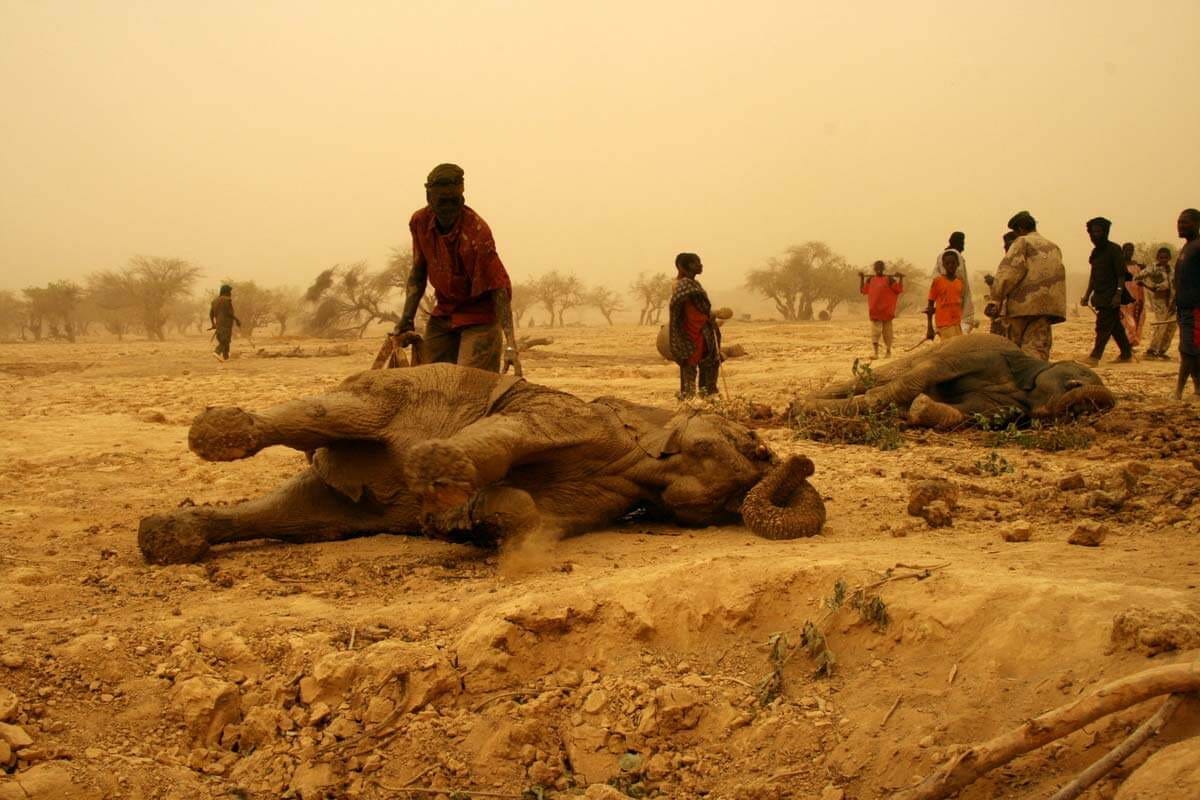Ummm.... no He doesn't.
פּוֹתֵחַ אֶת יָדֶךָ וּמַשְׂבִּיעַ לְכָל חַי רָצוֹן
"You open Your hand, and satisfy the desire of every living thing."
This is considered to be a very important verse. It's so important that it is one of the reasons why the Sages required us to say Ashrei three times a day. It's so important that, according to the Shulchan Aruch, if one forgot to say it with proper concentration, one must recite it again.

When I started yeshivah gedolah, and began to have real kavannah in davvening for the first time in my life, the following question occurred to me. He opens His hand, and satisfies the desire of every living thing? Ummm.... no He doesn't! From eels to elephants, there are creatures that die from hunger or thirst.
I asked this question to my Rosh Yeshivah. As I recall, he was somewhat was taken aback by the question. He eventually suggested that the ratzon mentioned in the verse is not the will of every living creature, but rather the will of God.
This appeared to me to be a rather forced interpretation of the verse. Furthermore, it rather limits the praise that the verse is giving. In the context of the lavish praise that this chapter espouses, it seems rather unlikely that here it is saying that God feeds only those that He wants to feed. Besides, a similar question can be asked about other verses with which no such escape clause exists. Does God really support ALL the fallen, and straighten ALL the bent?
I had a similar question about pesukim regarding bitachon, which seem to imply that if you trust in God, He will help you in the way that you desire. My Rosh Yeshivah claimed that this is really true - that if one has sufficient trust in God, He will do whatever you need. But aside from this being an extremely unhealthy approach to teach young men (it forces them to attempt to brainwash themselves), could it really be the meaning of these verses? Could anyone believe that God is really guaranteed to rescue you from all harm, if you have sufficient trust that He will do so?
Only much later, when I was able to appraise things in a more mature way, did the answer become obvious to me. The authors of these psalms lived in a much harsher world than ours, and were well aware that these statements were not actually factually true. But such psalms are expressing religious sentiments, hopes and wishes. They are describing an idealized form of reality, not the factual reality.
The question that I now have is as follows: How is it that there are so many people who have been saying "You open Your hand, and satisfy the desire of every living thing" three times a day with great kavannah, but have apparently never thought about what it actually could possibly mean?


